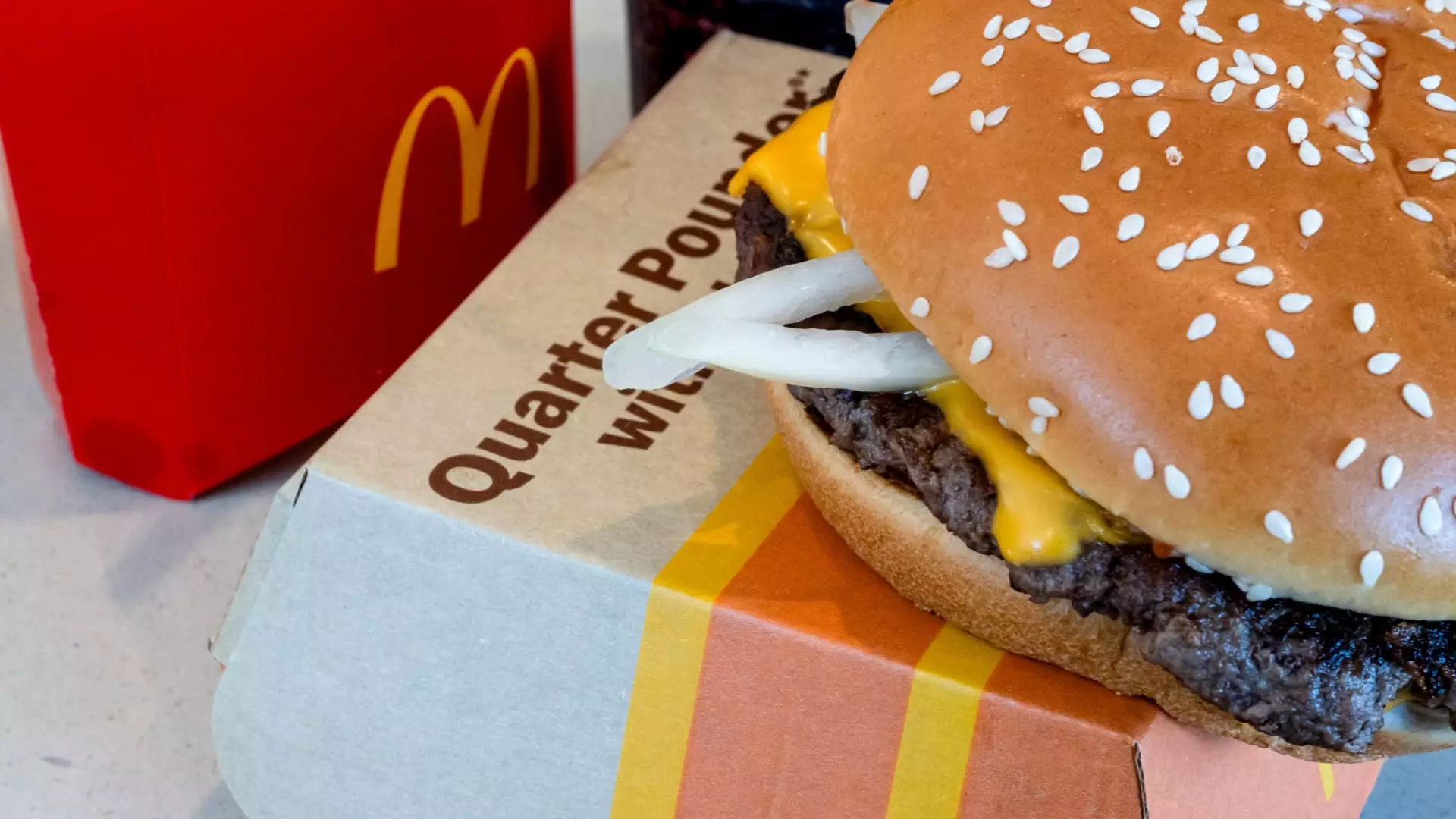In recent weeks, a significant E. coli outbreak associated with McDonald’s Quarter Pounder hamburgers has come to light, causing alarm across 13 states and leading to 75 reported cases. The Centers for Disease Control and Prevention (CDC) has recognized the gravity of the situation, highlighting that 22 individuals have been hospitalized, and tragically, one older adult in Colorado has died. There are key statistics to examine: among the 61 patients whose circumstances have been documented, 22 required hospitalization due to their condition, which included two critical cases developing hemolytic uremic syndrome—a severe complication that can lead to renal failure.
The affected demographics range widely, from ages 13 to 88, underscoring that E. coli does not discriminate based on age. The CDC has indicated that the true scale of this outbreak is likely underreported, as many people recover from E. coli infections without ever being medically tested or seeking healthcare. Undoubtedly, this adds a layer of complexity to the investigation, as it may extend beyond the immediate states involved, potentially indicating a more widespread issue.
The CDC’s food safety investigations typically span weeks to months, and in this case, they face a daunting challenge in determining the exact source of the E. coli contamination. Preliminary findings suggest that slivered onions, a key ingredient in the Quarter Pounder, are the primary suspect. McDonald’s has responded by removing these slivered onions from the menu in specific locations and has ceased their distribution to mitigate further risks.
In light of these events, it was revealed that Taylor Farms, a large produce supplier based in California, has issued a recall on several raw onion products. This step signifies the seriousness of the contamination concerns, as food safety is paramount not only for public health but also for the reputation of the companies involved. Other fast-food chains, like Burger King and Taco Bell, have exercised caution by withdrawing similar onion products from certain locations, thereby showcasing an industry-wide response to a potential food safety crisis.
The financial implications of this outbreak are already becoming evident, with McDonald’s shares dropping by 2% following the CDC’s announcement, bringing a total decline of 6% since the outbreak was first confirmed. Such downturns can lead to wider ramifications, especially considering that a fifth of its U.S. restaurants are temporarily unable to sell Quarter Pounders. This significant menu item generates substantial revenue for the fast-food giant, raking in billions annually.
Industry analysts now speculate on the potential impact of this outbreak on McDonald’s upcoming quarterly earnings report. With sales struggling in recent quarters and consumers becoming increasingly price-sensitive, particularly amid inflationary pressures, the company has been navigating a challenging business environment. The significance of maintaining customer trust and demonstrating a commitment to food safety cannot be overstated, as these factors play a crucial role in customer retention and market performance.
McDonald’s has been swift in its attempts to reassure consumers about the safety of its food items, emphasizing that not all products are implicated in this outbreak. However, the brand must tread carefully. The fallout from food safety incidents can linger, affecting consumer perceptions long after the crisis has been resolved. Experts point to historical cases, such as Wendy’s 2021 E. coli outbreak, noting similarities in the aftermath and suggesting that unless the situation escalates dramatically, the brand may sustain minimal long-term damage.
Yet, reassurance must be coupled with visible, decisive action. Consumers today are more informed and discerning, making it critical for companies like McDonald’s to prioritize transparency and accountability. The brand’s ability to navigate this outbreak effectively could shape its public image for years to come.
As the CDC continues its investigation into the outbreak linked to McDonald’s Quarter Pounder, the restaurant chain is under scrutiny, both in terms of public health and economic viability. The full extent of the outbreak’s impact remains to be seen, but McDonald’s actions over the coming weeks will be pivotal. Their proactive measures, transparency with the public, and commitment to enhancing food safety standards will likely determine how quickly they can rebuild trust with their customer base and recover from this unfortunate incident. It is a moment for reflection not just for McDonald’s, but for the entire fast-food industry, as the ramifications of food safety remain a critical concern for all stakeholders involved.

